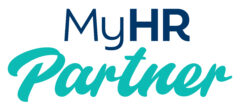Imagine receiving automated well-wishes from a chatbot on your birthday and going through a virtual reality interview. But do employees truly appreciate these automated interactions, or do they prefer a more personal touch? As HR departments increasingly rely on AI and automation, the line between efficiency and personal touch becomes a critical concern.

According to a recent survey by People Management software provider Advanced, 60% of HR professionals believe that AI will positively impact the way HR operates. However, with 63% of companies reconsidering the role of their HR department due to the impact of AI, concerns about job losses and the potential loss of personal touch also arise. We speak to Alex Arundale, Chief People Officer at Advanced, who says: “The key is to maximise the strengths of AI while enhancing the contributions of HR professionals.”
However, putting this into practice can be challenging and requires careful navigation. According to a global study from Harris Insights, while more than 80% of employees in the US and UK believe having AI skills will give them a competitive edge, 42% don’t believe their HR department can execute it. It is therefore vital that HR departments not only build on their AI capabilities but also focus on preserving employee trust and engagement throughout the AI adoption process.
Arundale envisions People and Culture teams as disruptors: “HR professionals can assume a key role as AI evangelists, promoting and supporting company-wide applications. HR must begin to anticipate the impact AI will have on the composition and skill redevelopment of the future workforce. With AI taking on roles that perform repetitive tasks, new skill sets will emerge which will affect the future needs of the organisation.“ With this in mind, let’s explore how AI can transform the HR department for the better.
Are the HR bots coming?
HR departments, or more recently People and Culture teams, aim to improve employee engagement and experience. However, the reality is that they often get tied up in large amounts of admin tasks. AI and automation can relieve some of this pressure, but it also has the potential to make the employee experience less personal.
Alex Arundale, Chief People Officer at Advanced identifies the challenges and opportunities of AI and automation in HR teams: “HR’s dual role of strategy and empathy is not easily replicated by machines, but those whose functions are purely process-focused will need to become more relevant in order to survive in the future. It is important for HR professionals to develop skills and competencies that will be crucial in the digital world, such as critical thinking, emotional understanding, creativity and collaboration – as well as gaining more STEM skills. The key is to maximise the strengths of AI while enhancing the contributions of HR professionals.”
Making processes more efficient
Amidst fears of mass job losses, one in three business leaders think that AI will replace at least half of their manual processes. The potential impact on jobs should not be understated. According to a McKinsey report in 2017, up to 375 million workers may need to change their occupational category by 2030. However, despite these concerns, Arundale has a more hopeful view of the future: “AI is seen by some as a threat, with its mechanisation of huge numbers of tasks and sometimes entire roles – but it is also an opportunity to rethink the organisation and take ownership for smarter ways of working.”
AI has the potential to boost efficiency by automating tasks such as ticketing and generating insights through dashboards. By relieving HR professionals of these administrative burdens, they can focus more on human interactions, ultimately enhancing the overall employee experience. Additionally, AI’s objectivity can lend itself well to complex processes like pay reviews, ensuring fairness and accuracy. Furthermore, AI can analyze social network data to gauge employee sentiments.
Arundale emphasizes that AI will not replace jobs, but rather transform them: “HR Business Partners could become the ‘front end’ of HR, backed by a vast amount of AI doing the transactions.”
Recruitment
Research indicates that 70% of a recruiter’s time is currently spent sifting candidates. From processes such as talent screening, booking and re-booking interviews, reminders, and even passive candidate sourcing, AI tools can greatly increase efficiency.
Additionally, a recent OnePoll survey found that 77% of hybrid and remote workers would be more committed to their role if their company provided them with better technology. With the average worker losing around 102 minutes of productivity each week due to issues and frustrations with tech, it is clear that adopting better tech can provide a great competitive advantage for attracting and retaining talent.
Other HR innovations
For a deeper dive into the potential impact of AI on the HR department, explore future technology predictions here, or refer to this informative resource for a comprehensive exploration of how AI can revolutionize the HR department. Here’s a summary of just a few of them:
- Employee portal: staff can access real-time information about holidays, expenses, and payroll without needing to ask
- Employee experience chatbots: requesting holidays, submitting expense forms, answering common questions, birthday messages, onboarding, conducting employee sentiment and feedback surveys, attendance
- Next-level training: identify skills gaps, microlearning, which can quickly close skill and knowledge gaps, experience platforms, AI-based systems and Virtual Reality (VR)
Arundale concludes that new technology will benefit both employees and HR professionals: “HR leaders have increasing ownership of their technology platform. In the past, this technology was designed around the organisation rather than the employees. However, this is changing as HR professionals embrace a people-first approach – allowing employees to take greater control of their career management.”



















